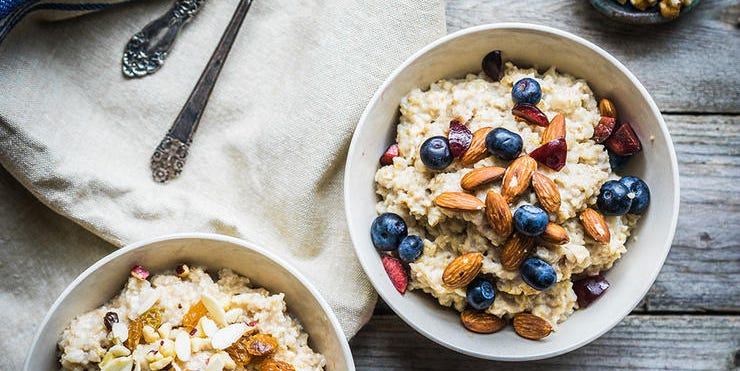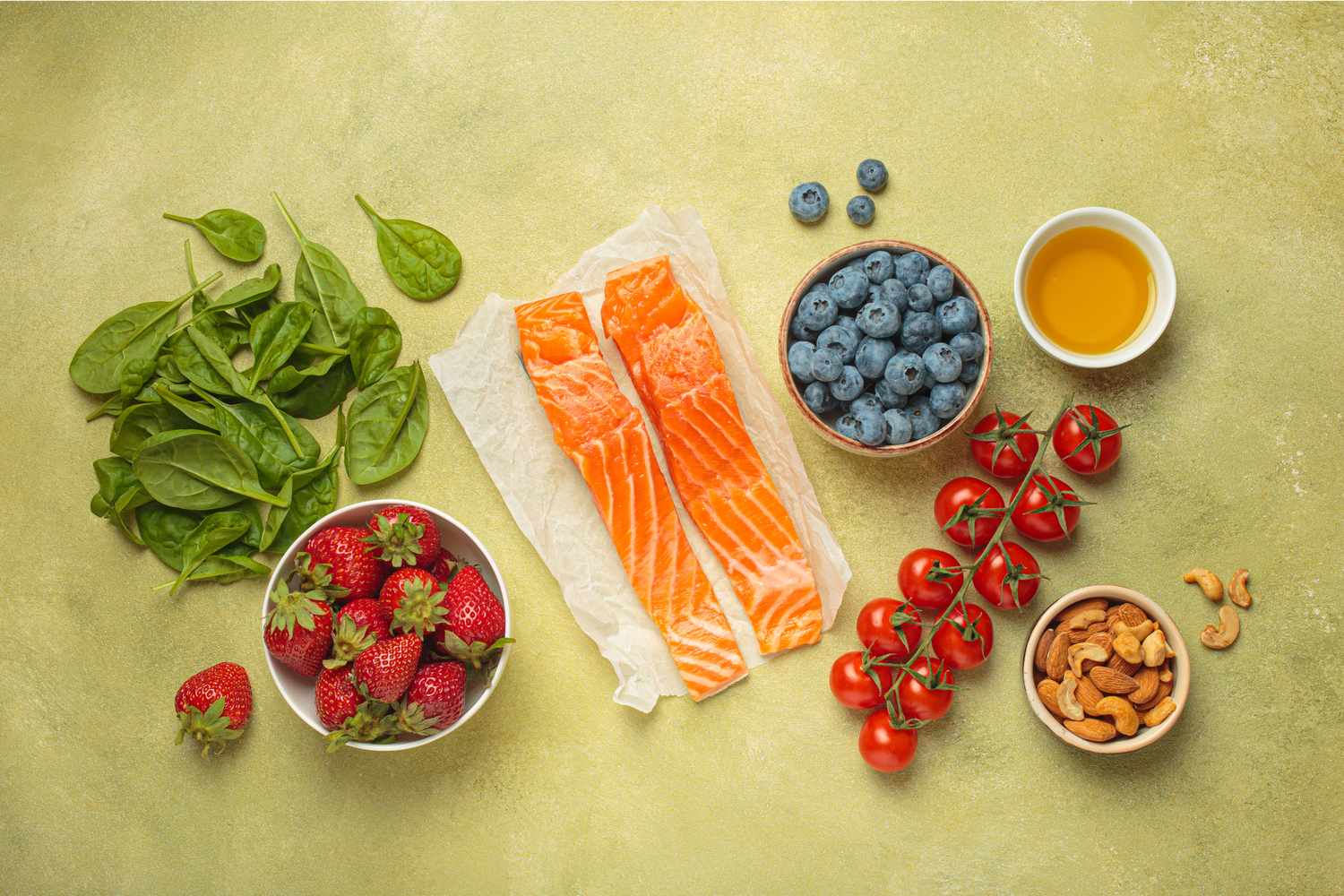Incorporating nutritious meals into your routine is key to reaching your health goals. Oatmeal has been a reputable healthy breakfast food for ages. But, despite all of its touted health benefits, not to mention recent trends like the “Oatzempic” challenge, is oatmeal good for weight loss?
Ultimately, “it really depends,” says Jessica Cording, M.S., R.D., author of The Little Book of Game-Changers. “Oatmeal can be a very healthy food, but there are a few things to consider with it,” she points out.
Meet the experts: Jessica Cording, M.S., R.D., author of The Little Book of Game-Changers; Keri Gans, M.S., R.D., author of The Small Change Diet; Scott Keatley, R.D., of Keatley Medical Nutrition Therapy; Melissa Prest, D.C.N., R.D.N., national media spokesperson for the Academy of Nutrition and Dietetics and member of the Prevention Medical Review Board; Beth Warren, R.D., founder of Beth Warren Nutrition and author of Secrets of a Kosher Girl; Amy Lee, M.D., medical nutrition specialist.
Ahead, nutrition experts explain the health benefits of oatmeal, if it is good for losing belly fat, and any potential drawbacks of the breakfast staple.
Health benefits of oatmeal
Oatmeal boasts a variety of health benefits. According to nutritionists, here are some ways oatmeal may do good for you:
It may help you feel fuller, longer
The soluble fiber in oatmeal can help fill you up, Cording says. “It interacts with fluid in your digestive tract and takes up space in the stomach which can help with satiety,” she says. “It helps if you’re someone who finds that you get hungry shortly after eating.”
It may reduce the risk of heart disease
“Oatmeal is a 100% whole grain rich in soluble fiber which may help reduce the risk for heart disease, lower cholesterol levels, and maintain blood glucose levels,” says Keri Gans, M.S., R.D., author of The Small Change Diet.
It’s a super accessible, healthy grain
Oatmeal is “extremely available” and can be made quickly, points out Scott Keatley, R.D., of Keatley Medical Nutrition Therapy. That, he says, raises the odds you’ll actually eat it when it’s at your place instead of just taking up permanent residence in your cupboard.
It may improve skin and boost immunity
“There is some vitamin E in there as well, which is good for hair, skin, and nails, as well as a key player in the immune system,” Keatley says.
It could help balance your gut microbiome
Oatmeal is a prebiotic food, which means it feeds the probiotics, or healthy bacteria in your gut, creating a balanced microbiome. In fact, a 2021 review published in the Journal of Nutrition found eating oats to be associated with good gut health.
Is oatmeal good for weight loss?
It can be. “Fiber is one of the things that helps you feel full after a meal and there is an okay amount of fiber in oatmeal,” Keatley says. “But it’s still a grain and has a lot of energy in a little package. This means it is very easy to overeat and many people need to add honey, sugar, or some sweetener to make it palatable which does not help the nutritional profile.”
There’s also a difference between eating plain oatmeal, like old fashioned or quick oats, and the instant flavored stuff, says Beth Warren, R.D., founder of Beth Warren Nutrition and author of Secrets of a Kosher Girl. “Be careful consuming oatmeal from the flavored packets as many brands can have a load of sugar,” she says. “Ideally, opt to create plain oatmeal with your added sources of flavor and ingredients such as fruit with a teaspoon of peanut butter.”
Cording says that oatmeal’s ability to help with weight loss really depends on what you eat it with. “You want to make sure you incorporate some protein and fat,” she says. That can mean making it with milk, adding a spoonful of seed or nut butter, or having it with an egg, she says. You can also toss a handful of berries or shredded zucchini in with it for added nutrients.
Is oatmeal good for losing belly fat?
“Oatmeal can be great for losing overall weight and perhaps even belly fat,” explains Amy Lee, M.D., medical nutrition specialist. “But we have to consider the types of oatmeals that are being eaten. This means, instant oatmeal is not recommended for weight management as it is oftentimes packed with added flavors and sugar. I also recommend the use of steel-cut oats that you cook over the stove so you know you are getting the real thing with good added fiber. The fiber itself can add bulk and keep you fuller, longer which would prevent you from overeating and taking in extra calories.”
Can I eat oatmeal every day to lose weight?
“Yes, you can eat oatmeal daily but also add things such as fresh fruits into it to get added phytochemicals, vitamins, and minerals,” Dr. Lee says.
Are there any drawbacks to eating oatmeal?
Oatmeal isn’t a complete meal, Keatley says, “but many people treat it as such.” That’s why it’s so important to add protein and fat to round out the nutrition you get from having a bowl, he says. (And to curb blood sugar spikes in those with types of diabetes.)
Gans also recommends being mindful of your portion size. “A person should stick to the 1/2 cup serving before cooking,” she says.
Dr. Lee agrees, “There is some level of carbohydrate in it so don’t overeat oatmeal,” especially when trying to adhere to a low-carb diet. But, Dr. Lee has a tip: “My mother used to add eggs into the oatmeal as she cooks it over the stove for the extra proteins.”
Overall, though, if you eat your oatmeal with minimal sweeteners and add some protein and fat to the mix, Cording says it can be a healthy food that can help you reach your weight loss goals.
What is “Oatzempic”—and does it work?
With all of the buzz surrounding Ozempic, a type 2 diabetes drug associated with weight loss, reports of natural “dupes” for the drug abound. And oatmeal is not immune to the trend. “Oatzempic” is a recipe that blends about 1/2 cup of oats, one cup of water, and juice from a lime into a lower-calorie beverage, says Prest. “The idea is that oats are high in soluble fiber and can increase fullness while decreasing hunger,” she explains.
Most people who have tried this trend have done so with some other restriction limiting calorie intake, Prest points out. “So it is more likely that it is being in a calorie deficit rather than the oats on their own are contributing to weight loss,” she says. It is important to remember that “oatzempic” cannot be used as a replacement for glucagon-like peptide-1 receptor agonist (GLP-1) medications, such as Ozempic and Wegovy, she notes. But, for those looking to lose weight, oatmeal may help when eaten alongside lifestyle changes.


